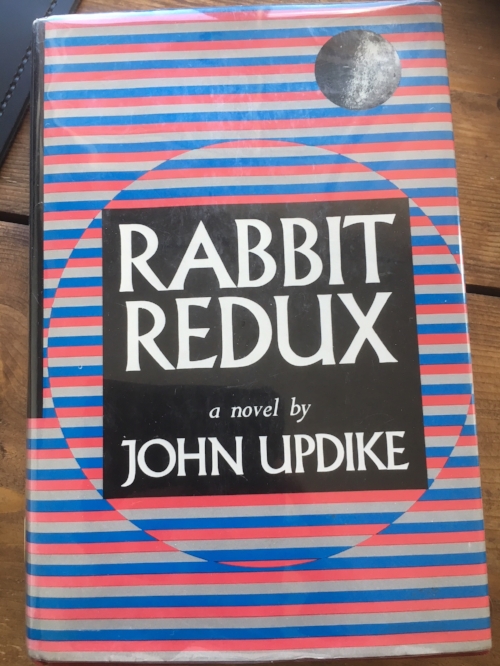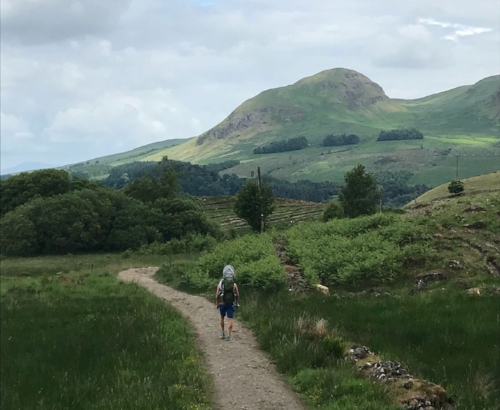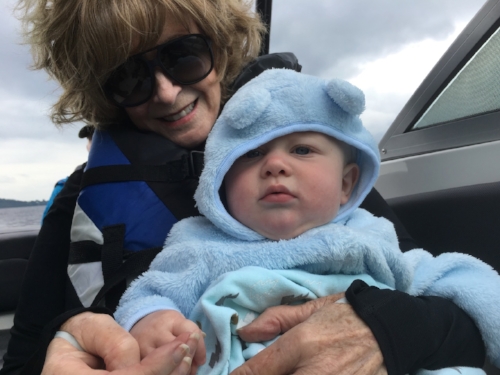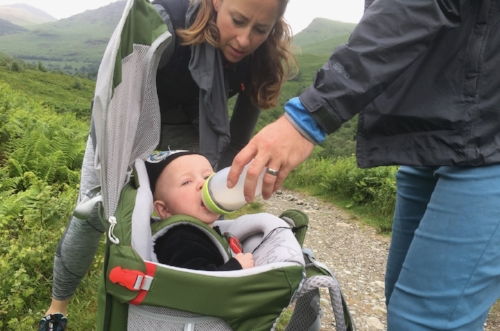Reading Marilynne Robinson is like going to a good church. I'm admittedly not much of a religionist, but I've visited enough services to know what I like. The church of Robinson is not one of the places where the pastor chants through the liturgy in latin, and the choir obligingly resurrects old hymns. Instead, her writing captures the part of religion that thoughtful people mull over after the service. Her books are books about big questions. They feel like the sermons of someone who cares about community—someone who understands why his parishioners might have to make a difficult choice that seems like evil on its face, but who also gently coaxes them to think about the parts of themselves that will regret it.
In Lila, the third of her novels that I’ve read, one of the chief characters is, indeed, a pastor: a man named John Ames. Ames is the protagonist and narrator in another of her novels, Gilead, and the writing of that book is referenced by narrator in this one. Ames is an old man, and a profoundly gentle spirit. He serves as a reminder of what pastors should be: humble, thoughtful, and deeply concerned about how life ought to be lived. Robinson is herself a devout Christian and Ames feels like a character created as a defense of Christianity. He shows what religion can bring to a person’s life, as well as what the application of a pastor’s duties can do for a community. The church ought to be a place of humility, of sanity, and of generosity. (Robinson more or less explicitly argues this in an interview, so I don’t think it’s an overreach to attribute it to her.)
Lila, like Gilead before it, sets Ames’ gentleness against the world’s confusion and cruelty. Neither novel has an antagonist. Instead, their plots develop around one character’s struggle to allow herself or himself comfort. In Gilead, the central question is whether Ames can forgive himself for dying before his son will be old enough to really know him. In Lila, the titular character is Ames’ young wife and the mother of his child. She started life as an orphan and migrant worker during the dust bowl, and she did a turn as a prostitute at a brothel in St. Louis. The plot of Lila centers on whether she can learn to trust Ames and forgive herself.
One of the things I adore about Robinson’s books are the way that they almost read like parables; they take struggles we will all face and dramatize them. Gilead is about searching for meaning in life as death nears. Lila is about learning to trust.
Another thing I adore about them are the sentences. Here, for example, is Lila after years wandering through the midwest, looking for work: “It just went on and on, The United States of America. It was so easy to forget that most of the world was cornfields.”
Or, how about this passage when Lila thinks about movies and thinks about the woman who raised her, a former prostitute named Doll, and how she misses her: “[Lila] went to the movies…And when she was sitting there in the dark…she was dreaming some stranger’s dream, everybody in there dreaming one dream together. Or they were ghosts, all gathered in the dark, watching the world, seeing all the scheming and the murder and having no word to say about it, weeping with the orphans and having nothing to do with them…the best part was always to be there sitting in the dark, seeing what she had never seen anywhere before and mostly believing it…what to imagine for Doll… she couldn’t wish that scar away or how Doll never forgot to hide her face for anyone but Lila. The ghost couldn’t really be part of the dream. Lila would just be there, so close, seeing that tender, ugly face. Just her. Nobody else would want a dream like that.”
The passage is substantially longer and more meaningful without the parts I’ve expurgated, but I adore the idea that movies are the visions of ghosts who invisibly watch people. Maybe the ghosts are are curious or maybe they love the people they watch even though they cannot touch them or say anything to them. It’s a wonderfully imaginative way for Lila to think about an afterlife she isn’t sure that she believes in. It’s also a vision that is both loving and lonely. In fact, the passage does what the book does, in microcosm: it seeks to explore the split between a need for love and a terror of other people.





















